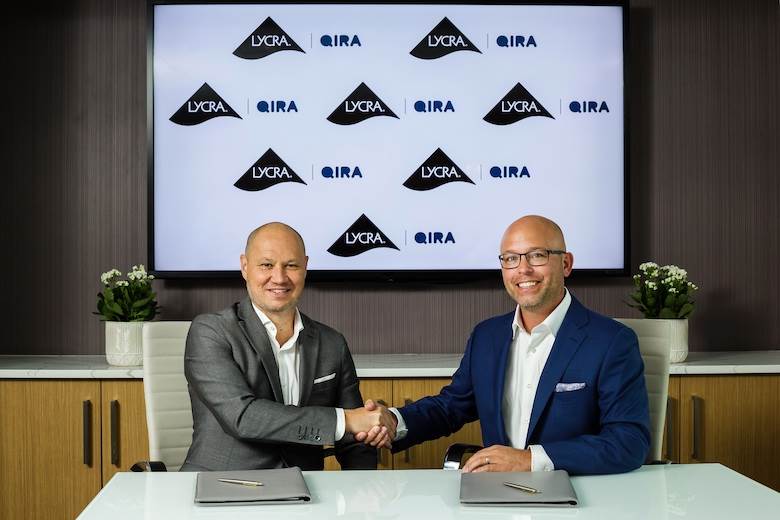Lycra prepares to scale bioderived spandex

Fibre developer The Lycra Company has signed a deal with Qore, the maker of a biobased 1,4-Butanediol (BDO) alternative called Qira established only last year as a joint venture between chemicals firm Helm and food corporation Cargill’s bioindustrial business.
The agreement will enable large-scale commercial production of bioderived Lycra spandex (ie, elastane) using the Qira platform as a main ingredient, effectively taking the proportion of fibre content that stems from annually renewable feedstocks – in Qira’s case, corn – to 70%.
An estimated cradle-to-gate assessment conducted by Ramboll consultants at a representative Lycra fibre manufacturing site back in June suggested that replacing non-renewable, fossil energy-derived content with Qira could reduce the fibre’s carbon footprint by as much as 44%.
Production is expected to begin in 2024. Cargill’s yet under-construction biotechnology campus and corn refining operation in Eddyville, Iowa, will act as Lycra’s Qira supplier, ahead of the BDO being transformed into bioderived, Lycra-branded spandex at the fibre manufacturer’s facility in Tuas, Singapore.
Lycra owns the patent for a process capable of turning bioderived BDO into renewable spandex, it said, adding that tests had found no change in performance after switching out non-renewable fibre content with Qira.
“Qore’s expertise in operating fermentation processes and understanding chemical value chains makes them the ideal partner to help develop a bioderived Lycra fibre at commercial scale,” commented Lycra Company chief executive, Julien Born.
The fibre developer next seeks commitment from potential brand and retailer partners.
L-R: Lycra Company chief executive, Julien Born, next to Qore chief executive, Jon Veldhouse. Courtesy.










